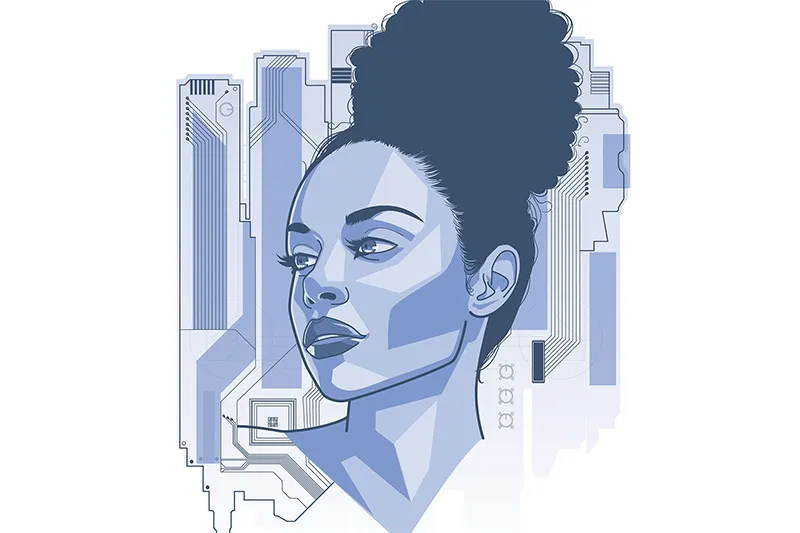Your cart is currently empty!
Diversity and Representation in Games: A Critical Analysis

Video games are a powerful medium of entertainment, education, and expression. They can immerse players in rich and diverse worlds, challenge them with complex problems, and inspire them with compelling stories. However, video games also have a responsibility to reflect the diversity of their audiences and the society they are part of. In this blog post, I will explore the issue of representation in video games, focusing on three aspects: the gender disparity in the gaming industry, the portrayal of women and minorities in games, and the need for more diverse characters and narratives.
The Gender Disparity in the Gaming Industry
One of the main challenges facing the gaming industry is the lack of gender diversity among its workforce. According to a 2019 report by the International Game Developers Association (IGDA), only 24% of game developers identified as female, while 74% identified as male. This gender gap has implications for the types of games that are produced, the perspectives that are represented, and the experiences that are catered to. For instance, a 2018 study by Quantic Foundry found that female gamers preferred genres such as simulation, casual, puzzle, and adventure, while male gamers preferred genres such as strategy, action, shooter, and role-playing. However, these preferences do not necessarily match the availability of games in the market. For example, a 2019 analysis by Statista showed that action was the most popular genre among game releases on Steam, accounting for 21.2% of all games, while simulation was only 5.8%. This suggests that there is a mismatch between the demand and supply of games for different genders.
The Portrayal of Women and Minorities in Games
Another issue related to representation in video games is the portrayal of women and minorities in games. Historically, video games have been dominated by white male protagonists, often featuring stereotypical or sexualized depictions of women and people of color. For example, a 2016 study by Williams et al. found that only 10.7% of playable characters in 571 games were female, while 85.2% were male. Moreover, only 2.7% of playable characters were black, while 76.2% were white. These numbers indicate a severe underrepresentation of women and minorities in video games, especially considering that they make up a significant portion of the gaming population. According to a 2020 report by the Entertainment Software Association (ESA), 41% of gamers in the US were female, while 39% were people of color.
The Need for More Diverse Characters and Narratives
The lack of diversity and representation in video games not only affects the gaming industry itself but also its social and cultural impact. Video games can influence how players perceive themselves and others, shape their attitudes and values, and foster empathy and understanding. Therefore, it is important to have more diverse characters and narratives that reflect the reality and complexity of human diversity. By creating more inclusive and respectful representations of women and minorities in video games, game developers can not only expand their audience and market potential but also contribute to social change and justice.
The Future of Ethical Gaming: A Vision for Tomorrow
As video games become more advanced and pervasive, they face new ethical challenges and opportunities. In this blog post, I will speculate on the future of ethical gaming, discussing how emerging trends like AI and blockchain could influence the ethical landscape of the gaming industry.
AI and Ethical Gaming
Artificial intelligence (AI) is one of the most promising and disruptive technologies in the gaming industry. AI can enhance various aspects of game design and development, such as graphics, sound, gameplay,
storytelling, personalization, and accessibility. However, AI also poses ethical risks and dilemmas for game developers and players alike.
Some of the ethical issues with AI in gaming are:
- How can game developers ensure that AI-generated content is appropriate and respectful for different audiences and cultures?
- How can game developers protect the privacy and security of players’ data when using AI to collect
and analyze their behavior and preferences. - How can game developers prevent or mitigate the potential harms of AI-enabled cheating,
hacking, or manipulation in online games? - How can game developers balance the trade-offs between realism and morality when creating
AI-driven characters or scenarios?
These are some of the questions that game developers will have to grapple with as they adopt AI in their games. To address these issues, game developers will need to adopt ethical principles and guidelines for AI use in games, such as transparency, accountability, fairness, safety, privacy, and human dignity.